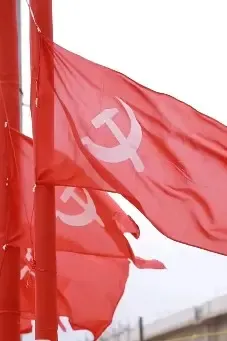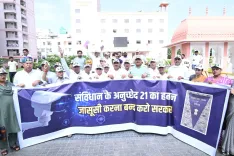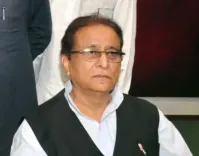Is the BJP's Growth in Kerala a Cause for Concern?

Synopsis
Key Takeaways
- Urgent need for Left unity in Kerala.
- CPI's role as the second-largest ally in the Left Democratic Front.
- Criticism of the BJP's power misuse.
- Focus on grassroots engagement during local elections.
- Renewal of the CPI's ideological commitment.
Alappuzha (Kerala), Sep 10 (NationPress) The Communist Party of India (CPI) has expressed serious concerns regarding the Bharatiya Janata Party (BJP)'s unexpected rise in Kerala, urging for a more cohesive Left unity to address this challenge.
The CPI stands as the second largest partner in the CPI(M)-led Left Democratic Front government.
Since the establishment of the CPI(M) in 1964, the CPI has been positioned in a secondary role, briefly aligning with the Congress party during the 1970s.
In a political resolution adopted prior to the 25th Party Congress, the CPI emphasized that such unity is a strategic necessity for the protection of democracy and secularism.
The resolution criticized the BJP for exploiting its power to penetrate various societal sectors and cautioned against viewing elections as mere seasonal exercises.
Moreover, it called for the Left Front to abandon superficial candidacies and instead pursue significant political actions.
The resolution suggested that the upcoming local body elections should serve as a platform to connect with grassroots communities and cultivate a new generation of leadership.
The CPI must revitalize itself, maintaining its ideological legacy while evolving in form and substance.
The party aims to be the leading force for future communist leaders.
While underscoring the importance of unity, the CPI noted that it should not be merely an issue of electoral arithmetic and warned that opportunistic alliances may yield minimal long-term benefits.
The CPI's state conference, linked to the 25th Party Congress, commenced in Alappuzha on Tuesday.
General Secretary D. Raja inaugurated the delegate session, which included 528 delegates and 39 special invitees.
A traditional torch procession, originating from the Vayalar Martyrs’ Memorial, marked the inauguration, concluding at Kanam Rajendran Nagar, where it was received by State Secretary Binoy Viswam.
Later on, Chief Minister Pinarayi Vijayan is set to launch a seminar titled “The Future of Secularism and Federalism,” which is anticipated to foster extensive discussions on the challenges facing India's federal structure and the risks posed by right-wing forces to the secular framework.





